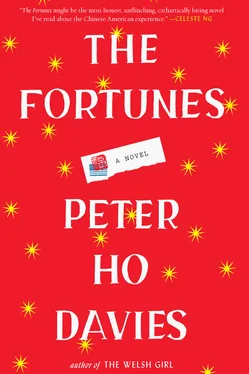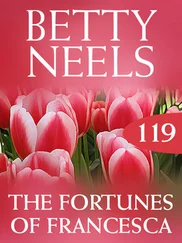That’s why Vincent’s case was so empowering. They thought he was Japanese ! They were manifestly wrong, completely refutable. We didn’t all look alike — that old racist fallacy — but even if we did, we weren’t.
His name was Chin, for god’s sake! As in China.
And yet — it has sometimes nagged me — what if Vincent had been Japanese? His death wouldn’t have been more or less, just differently unfair, I guess. But would it have brought us together? I doubt it.
And what of me? Weren’t Vincent and I alike that night? Evans and Pitts chased us outside the club, ignoring Jerry and Mike. Except Vincent fought back, and they killed him. So we’re not all alike, though I sometimes feel guilty for not being more like him.
I’m not a motherfucker, he said. And he wasn’t. But it’s that word that set him off, I think. More than the race thing, even. That we heard every day anyhow. But he didn’t like motherfucker. He was an adoptee, his father had died less than a year earlier, he still lived at home, and he was about to get married. He didn’t like that word. It’s unfilial, okay? Disrespectful. We worship our ancestors.
I asked him once about his birth parents — he was cooling down after a practice — and he said he didn’t know. Dead, he figured, or unmarried, or so poor they had to sell him or give him away. He’d come from Hong Kong, so they might have been refugees from the Communist mainland. He was taking deep breaths, chest rising and falling, beads of sweat in his hair like dew. I don’t know what I expected. I might have been probing for vulnerability, looking for an opening to express sympathy. But this was the opposite of self-pity. “I feel bad for them, but it’s not like I remember them.” Yet what if they’d kept him? I pressed. He had his thumb to his wrist, counting his pulse. “That kid wouldn’t have been me, couldn’t have been.”
I read somewhere once that in China during the Cultural Revolution, they called bashing someone’s brains in opening the flower.
I wonder sometimes about the odd echoes — an adoptee and his mother, a father and a stepson. Perhaps they all had something to prove. Evans did say, “I was just defending my boy.” He was a superintendant at Chrysler when Pitts was laid off; maybe he felt he owed him. Maybe he loved him like his own. They still played baseball together is why they had the bat in the trunk in the first place. Turns out Evans only took Pitts to the club that night because the boy had just had a fight with his girlfriend. And the day after (the only day either of them ever woke up in a cell)? Father’s Day.
Vincent was my friend. So how could I leave him? He was my friend, but I didn’t always like him. How could I not envy his confidence, his good looks, his fiancée? Even afterward, I hated him a little. Even in death he made me feel like nothing. Worse than nothing. Oh, it wasn’t right, those two getting off for killing him. But that’s not why I testified at the federal trial. I wanted to stand up, even if belatedly. I didn’t want to feel like a motherfucker. So I met with Tina, the young Chinese lawyer, and Jerry and Mike, around a cigarette-burned table, and she told us, “You need to get your lines down, agree on what happened, get your stories straight.” I was touching my fingertip to each scorch mark in turn. Tina was slim and a little severe, but her long hair shone like Vicki’s. Vincent would have called her fine, found a way to make her smile. That’s when we remembered the racist talk, heard by all of us above the throbbing music, clearly recalled despite all the booze we’d drunk.
And Vincent’s last words? Heard only by me, spoken in Chinese so no one else could understand, never mind that his head was already stove in, jaw shattered, and people wonder how he could even have retained consciousness, let alone spoken. Well, okay, but it wasn’t fair, was it? None of it. Tell me that’s not true.
What did I do? What would you have done?
Evans got twenty-five years.
Out the courtroom window, I watched a jet slowly raise a scar across the sky.
What is truth, anyway? What I testified? This version? What you can read in the papers or online? Chinese whispers, you might say.
Vincent, incidentally, had wanted to be a lawyer when he was a kid. His mother told him no one would believe a Chinese lawyer. He wanted to be a writer too, but she told him he’d never make any money at it. By the time I knew him he was thinking about being a vet, but she reminded him he was scared of blood.
He was my friend. But did I like him, or was I just like him?
I couldn’t have told you the hits they were playing at the club that night. “Ladies Night.” “Centerfold.” “Ring My Bell.” “Private Eyes.” I couldn’t have recalled them, but when I hear those songs now I turn the stereo off.
Maybe, just maybe, if you remember the case at all, if you saw the Oscar-nominated documentary, or studied it in school, or read a blog about it, you’ll recall that Evans’s federal conviction was later appealed.
Lacey’s testimony was called into doubt. Had she received consideration for other charges? Maybe you remember some titillating smear that she wasn’t even wearing panties in court. That prim outfit on a stripper invited distrust, I guess.
And the witnesses’ testimony— our testimony, our memory (by this time five years had passed since that night) — was challenged. We’d been coached by our Chinese lawyer, they said.
Maybe you remember that Vincent was partying with white friends, but probably not. Maybe you remember there was a Chinese friend. Maybe you remember his name, but I hope not.
What did I remember? When did I remember it? I don’t know. The air conditioning was blasting in court, but my shirt was sticking to me like a Band-Aid. What if I didn’t want to remember that night? Did anyone think of that?
Maybe you remember that the federal conviction was overturned on appeal.
He never returned my copy of Jaws. He lost a tooth chewing taffy. He wore a polka-dot bow tie at the kids’ table one Chinese New Year. That’s what I remember.
I remember the first time he played me Sgt. Pepper. I remember him shoving someone for calling him Yoko. I remember watching the moon landings with him, a crowd of Chinese families gathered in somebody’s restaurant. We’d have been thirteen. Some kid at school had tried to spoil my excitement by saying that Aldrin and Armstrong had shot down Chinese MiGs in Korea. It was Vincent who reminded me, “They’re gonna be able to see the Great Wall from up there!” I remember him trying to grow a mustache like his hero, Steve Prefontaine; that he owned the first pair of Nikes I ever saw. I remember lighting firecrackers on his lawn for Fourth of July.
There was a civil suit everyone forgets. Evans was ordered to pay restitution, but he never did. He barely worked another day in his life. “Can’t get blood from a stone,” as he put it.
Evans also said of Vincent, “He was no choirboy.”
And: “It’s too bad, you know, especially for him. At least I’m alive.”
And of the beating: “Something just snapped. I don’t remember from there on what happened.”
He called me “a little pest.”
The evening Vincent’s life support was switched off Evans was back on the diamond playing ball, taking cuts.
Afterward I couldn’t bear to face her — Lily, Mrs. Chin — and she couldn’t bear to stay in the U.S. She already had her ticket back to China when the first verdict came down, but it only delayed things. She finally went back forty years after she left. Went home, some might say, to Canton, though by then it was called Guangzhou. She used to say she couldn’t remain in a land of injustice, but I always thought it was the vicious ironies that drove her out. She’d left China, after all, to escape her memories of the Japanese invasion, only to have her son killed because he was mistaken for a Japanese, and then to make common cause with Japanese Americans in her search for justice.
Читать дальше












